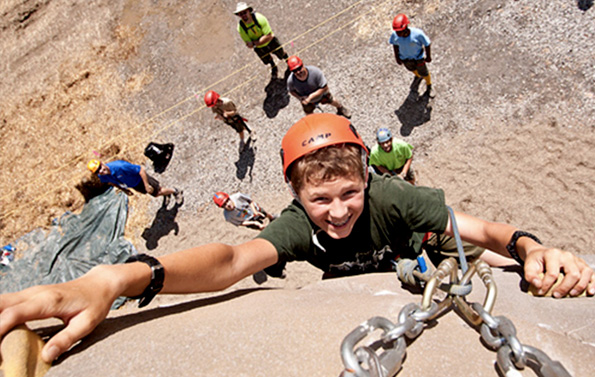I worked for many years with a young man who had been diagnosed with ADHD. This boy did indeed display a sometimes shocking inability to focus on his schoolwork; fifteen minutes into studying for a math test, he would invariably blurt out something utterly irrelevant (and disruptive) like “Did you see the new Lord of the Rings movie?” or “You have to check out this YouTube video!” Fascinatingly, however, this same boy would stay up til 2am almost every night pouring over the digital portfolios of famous photographers and the work of experimental filmmakers. He would also spend several hours a day teaching himself how to play the guitar and the piano. When he and I would make time to discuss his creative interests, he would listen, with rapt attention, for hours. When it came to things he cared about, his focus was miraculous and even superhuman.
Both his teachers and his parents berated this young man mercilessly about his distractable nature. In fact, his father would burst into his room on an almost daily basis, screaming at him to put down his guitar and get back to his studies. Although his father watched his son become an advanced guitarist without a single lesson, he continued to believe that the young man was undisciplined and incapable of perseverance. What no one seemed able to appreciate was that this young man knew a great deal about focused effort and the steps required to achieve success.
In my work with this young man, I began by having him explain his guitar-learning strategy. I asked him to share his techniques for overcoming obstacles and tolerating the tedium of learning chords. From this exploration, I learned that what worked best for him was breaking big, overwhelming tasks into manageable chunks. Without much conscious thought, this young man taught himself to create bite-sized goals so that he could experience success on a very regular basis. Intuitively, he had learned that the satisfaction associated with small successes was enormously helpful in keeping him motivated.
As we talked through his academic challenges, it became clear that when this boy could not experience small and consistent victories, he would become discouraged and distracted. Armed with this knowledge, I was able to present lessons to his boy, in Physics as well as Spanish, as small, discrete units that offered him daily (and hourly) experiences of mastery.
Of course, the strategies developed by this student were specific to him, and would not necessarily work for someone else. What feels important (and instructive) to me about this experience is the idea that all students have a great deal of useful knowledge about what they need to feel engaged and successful in the learning process. If we as educators have the time, and the humility, to learn from our students, we can marshal the power of all their intuitive wisdom instead of fighting against it.






